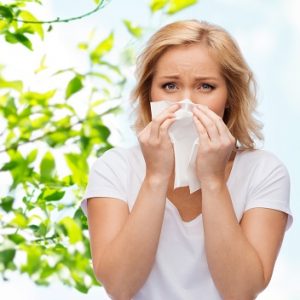
More evidence that low-calorie sweeteners are bad for your health
Studies show that artificial sweeteners can raise the risk of hypertension, metabolic syndrome, type 2 diabetes and heart disease, including stroke.

Natural Health News — Acupuncture can improve the symptoms of seasonal allergic rhinitis (SAR) – good news with spring just around the corner.
Writing in the Annals of Internal Medicine German researchers report on the largest sham-controlled trial of acupuncture in seasonal allergic rhinitis (SAR) performed to date.
In it 422 people were randomly assigned to receive treatment with real acupuncture plus what was called ” rescue medication” (RM) with cetirizine if needed, or sham acupuncture (gentle needling of points that were not recognised as acupuncture points) plus RM if needed, or RM alone.
Patients in the first 2 groups had 12 sessions of real or sham acupuncture over the course of 8 weeks. They were assessed after around 8 weeks of treatment, with a follow-up assessment at weeks 15 to 16.
Patients receiving RM alone underwent 12 sessions of real acupuncture starting on week 8 of the study to ensure that all of the groups received some form of acupuncture. They, too, had a follow-up assessment at week 16.
All patients were re-evaluated 7 to 8 weeks into allergy season the next year to assess how long-lasting any benefits were.
To find out if the acupuncture worked, patients were asked to fill questionnaires on quality of life and symptom severity.
Medication use was also monitored and given a score depending on how high the daily dose was. Thus 1 point was given for every cetirizine dose of 10 mg/day, 2 points for 20 mg/day, and 3 points for any use of steroids. Overall health was scored using a points system.
Early improvement
At weeks 7 to 8, acupuncture was associated with significant improvements in overall quality of life and a need for rescue medication. However by at 15 to 16 weeks (approaching the end of the season), improvements in health in the sham acupuncture group meant there was less difference between the two groups.
Overall the acupuncture patients had an average quality of life score that was 0.5 points better than those in the sham group and 0.7 points better than those in the medication-only group.
They also had rescue medication scores that were 1.1 points better than those in the sham group and 1.5 points better than those in the rescue medication group.
Interestingly, the real acupuncture group was still significantly improved in the following year compared with the sham group, regarding both symptoms and medication use.
Even so the authors were cautious, describing the improvements as “minimal” and concluding that “the clinical significance of the findings is uncertain.”
So why the scientific reticence?
Watchers of studies into complementary and alternative approaches to health are used to these kinds of tedious caveats. At no point do the authors clearly define terms like ‘minimal’ or ‘significant’ or try to explain how significant improvements become reduced to minimal ones in their conclusion.
Often such caveats are added as a condition of publishing ‘alternative’ studies in such highly conservative and high impact journals.
Significant means significant
The findings of the study show that by receiving acupuncture, patients could reduce that amount of antihistamine, as well as increase their quality of life.
People in the sham acupuncture group did find their symptoms improved as the season progressed, but then again it has been shown that symptoms are often worse in the beginning of the allergy season and get progressively better – regardless of medication use – as the season moves on. It’s good news, therefore that acupuncture provided significant relief more quickly and for more people than conventional medication.
In an editorial accompanying the study, Remy Coeytaux, MD, PhD, from the Duke Clinical Research Institute, and Jongbae J. Park, DKM, PhD, LAc, from the University of North Carolina at Chapel Hill, praised the investigators for using “an acupuncture protocol that simulates actual clinical practice” and wrote that the study lends “compelling support to the effectiveness of real-world acupuncture for SAR.”

Please subscribe me to your newsletter mailing list. I have read the
privacy statement